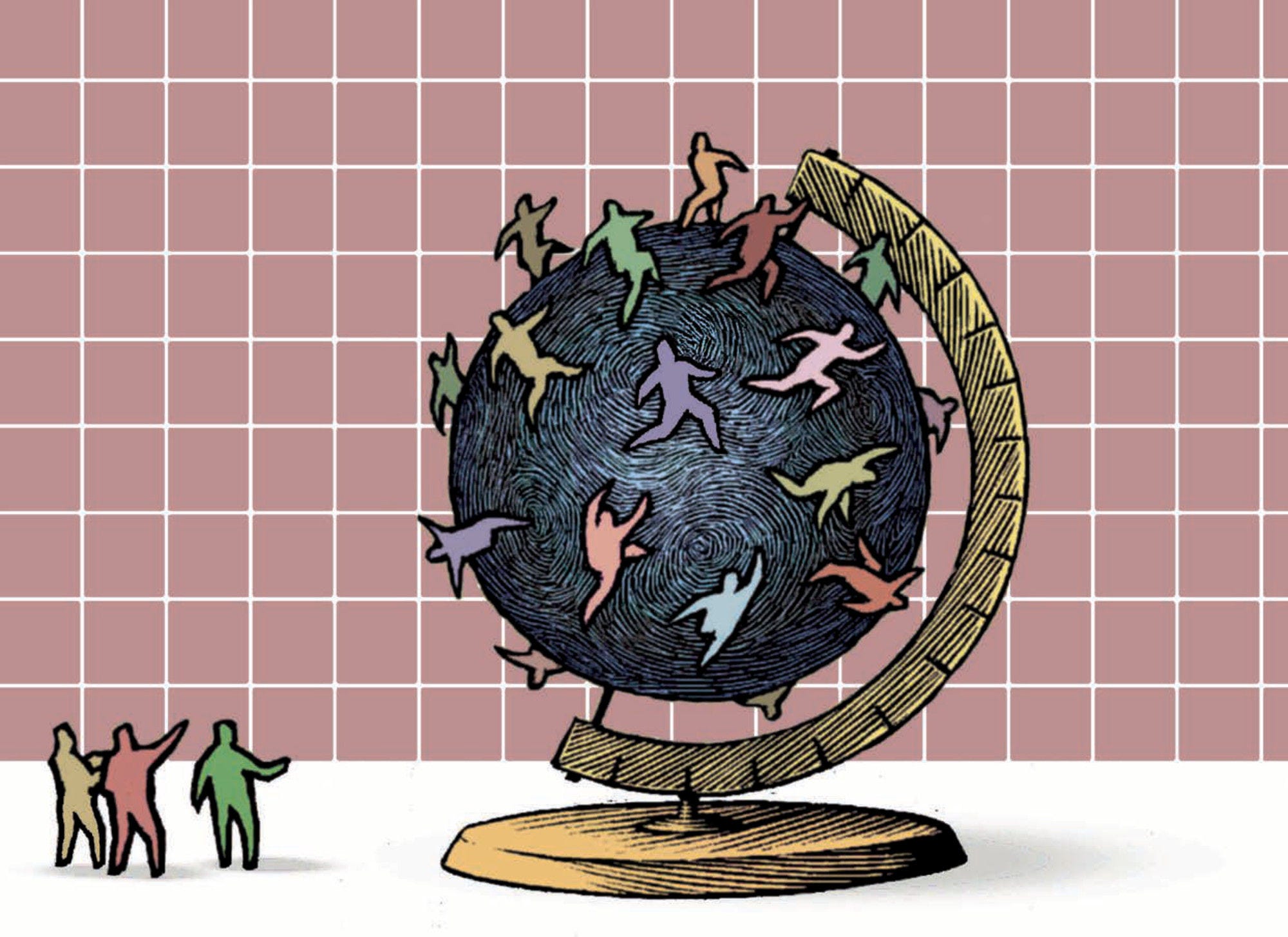In 2017, 4 000 new immigrants obtained a residence permit longer than 12 months in Estonia (excluding EU citizens), 4.6% more than in 2016. This figure comprises 36.8% labour migrants, 29.3% family members (including accompanying family), 25.6% who came for education reasons and 8.3% other migrants.
Around 200 short-term permits were issued to tertiary-level international students and 69 to temporary and seasonal labour migrants (excluding intra-EU migration). In addition, 3 000 intra-EU postings were recorded in 2017, a decrease of 19% compared to 2016. These posted workers were generally on short-term contracts.
Russia, Ukraine and Finland were the top three nationalities of newcomers in 2017. Among the top 15 countries of origin, Latvia registered the biggest increase (400) and Ukraine the largest decrease (‑54) in flows to Estonia compared to the previous year.
In 2018, the number of first asylum applicants decreased by 50%, reaching around 90. The majority of applicants come from Ukraine (15), Russia (10) and Pakistan (10). The largest increase since 2017 concerned nationals of Pakistan (10) and the largest decrease, nationals of Syria (‑75). Of the 75 decisions taken in 2018, 26.7% were positive.
Emigration of Estonians to OECD countries decreased by 14%, to 5 600. Their main destination (38.5%) was Finland, followed by Germany (14.3%) and Sweden (7.3%).
Several amendments to the Aliens Act were put into effect in 2017‑18. Temporary residence permits are now granted for five years and may be extended by 10 years. After five years of residence, extensions or new issuances of temporary residence permits for employment require A2 language proficiency level in the Estonian language.
European Directive 2016/801/EU – the recast Students and Researchers Directive – was also transposed. Estonian educational institutions now have the obligations of a sponsor for their students whose study visa or permit was issued by another EU Member State. The application for residence permit for study was amended, as well as for au pair employment.
For temporary foreign workers, the period of short-term employment was extended from up to 270 days in a year to 365 days during a 455‑day period.
Estonia sets annual quotas for new residence permits for employment, although many categories of applicants are exempt. In 2018, the quota was set at 1 315 residence permits, and was exhausted. The same number will be issued in 2019. On 15 July 2018 an amendment was made to the Aliens Act which exempts, in addition to other categories, top-level specialists from the quota. In order to fight more efficiently against illegal employment, several other amendments were made in legislation, including an increase of fines, amendments in short-term employment regulation, and prohibition on economic activities.
As part of the Work in Estonia initiative, the government allocated EUR 4 million to Enterprise Estonia to provide a EUR 2 000 recruitment grant for hiring foreign ICT specialists. The foreign recruitment grant came into effect in May 2018 and was increased to EUR 3 000 in March 2019, when the occupations were also expanded to science and engineering specialists. Firms can request the subsidy once the recruit – who must not have worked in Estonia in the previous three years – has been on the payroll for five months at a salary of at least EUR 2 000. The subsidy is meant to defray recruitment costs.
Since 2019, an amendment to the Citizenship Act provides free Estonian language training classes for adult applicants for Estonian citizenship who have been legally residing in Estonia for at least five years and eligible for citizenship. Language classes can involve paid study leave from work. The language examination does not apply to those who studied in Estonia. Applicants aged 65 or older need to pass only the oral language examination.
Since September 2017, the Estonian Unemployment Fund offers the service “My first employment in Estonia”, which targets beneficiaries of international protection and asylum seekers who are still in the procedure after six months. Employers receive wage subsidies for employing these workers. Certain costs are compensated (translation, Estonian language training, and vocational training). A reward for mentoring was introduced in early 2018. In September 2017, a support centre of the Estonian Refugee Council, targeted at refugees and those mainly located in Tartu, opened its branch in Tallinn city centre.
For further information
www.politsei.ee/en
www.stat.ee/en
www.siseministeerium.ee/enwww.workinestonia.com
www.tootukassa.ee/eng
